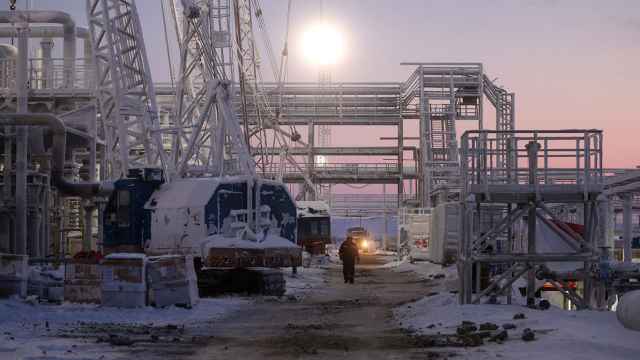The world is on the threshold of the biggest business opportunity in a century, rivaling both the first Industrial Revolution, which transformed labor productivity, and the second, which mobilized unprecedented amounts of capital to build cities. The new revolution centers on the third primary factor of production: natural resources.
The revolution arrives not a moment too soon. After centuries of wasteful production and consumption practices — facilitated by ever-lower commodity prices that have declined by an average of 0.7 percent a year in peacetime over the past century — the world is in dire need of technologies that enable producers and consumers alike to do more with less.
Making matters more urgent, resource extraction is becoming increasingly expensive, as production shifts to locations that present difficult logistical — and often political — challenges. Meanwhile, levels of air, water and soil pollution are rising rapidly in China, India, Indonesia, Brazil and other emerging economies.
To achieve their growth objectives, companies must fundamentally rethink the way they integrate technology and use natural resources in their productive processes. Over the past two decades, companies have had to improve their performance by only 1 to 2 percent annually to achieve an increase in profits, and many have focused almost exclusively on capital and labor productivity. As a result, even the most successful managers lack the skills to cope with today's resource-constrained markets.
In this environment, companies cannot compete on the basis of 20th-century, if not 19th-century, technologies and practices. There is much more value in pioneering new, higher-productivity business models, based on five key changes:
• Substituting costly, toxic, or scarce materials with cheaper, more efficient, higher-performance and more abundant alternatives.
• Embedding software in resource-intensive industries to optimize their production processes or products.
• "Virtualizing" processes — that is, moving them out of the physical world.
• Embracing circularity, which entails finding value in products after their initial use.
• Eliminating waste.
The good news is that progress is already being made. The burgeoning shale oil and gas industry in the U.S., for example, has transformed its entire energy sector by revolutionizing resource extraction. Today, drilling is not only a dirty process characterized by heavy equipment, toxic mud and sulfurous fumes. With the integration of information technology and hydraulic-fracturing, of "fracking," the central players are experts using joysticks and high-resolution screens to maneuver drill bits through geological formations.
Individual companies have pioneered change in other sectors. Cree and Philips, for example, have developed LED lighting technologies that offer 23 times longer life, measurably better color, easier control and 85 percent lower operating costs than traditional incandescent bulbs. Similarly, Doing it Right This Time, or DIRTT, is building office interiors at as little as half the traditional cost through software-enabled virtualization, waste elimination and optimization of the construction process.
These innovations exemplify the massive potential for businesses to improve resource productivity. Indeed, using tools provided by information technology, biology and nanotechnology, the world can triple growth in resource productivity, raising it to 3 to 5 percent annually over the next two decades.
But this cannot occur without strong and forward-thinking leadership, which, unfortunately, is sorely lacking in today's business environment. Indeed, managers today seem consistently surprised by the pace of change and thus find themselves behind the curve.
To win in the resource revolution, companies must balance technological, physical and human-capital inputs, while adopting a more intelligent approach to organizational design and talent management. Whether the primary imperative is spotlighting data and analytics or forming new partnerships in other sectors to gain access to specialized expertise, aggressive innovation is critical.
Forward-thinking entrepreneurs are already reaping the benefits of this fast-moving revolution. Those who fail to adapt will fail to survive — and soon.
Stefan Heck is a consulting professor at the Precourt Institute for Energy at Stanford University. Matt Rogers is a senior partner at McKinsey & Company. © Project Syndicate
A Message from The Moscow Times:
Dear readers,
We are facing unprecedented challenges. Russia's Prosecutor General's Office has designated The Moscow Times as an "undesirable" organization, criminalizing our work and putting our staff at risk of prosecution. This follows our earlier unjust labeling as a "foreign agent."
These actions are direct attempts to silence independent journalism in Russia. The authorities claim our work "discredits the decisions of the Russian leadership." We see things differently: we strive to provide accurate, unbiased reporting on Russia.
We, the journalists of The Moscow Times, refuse to be silenced. But to continue our work, we need your help.
Your support, no matter how small, makes a world of difference. If you can, please support us monthly starting from just $2. It's quick to set up, and every contribution makes a significant impact.
By supporting The Moscow Times, you're defending open, independent journalism in the face of repression. Thank you for standing with us.
Remind me later.






